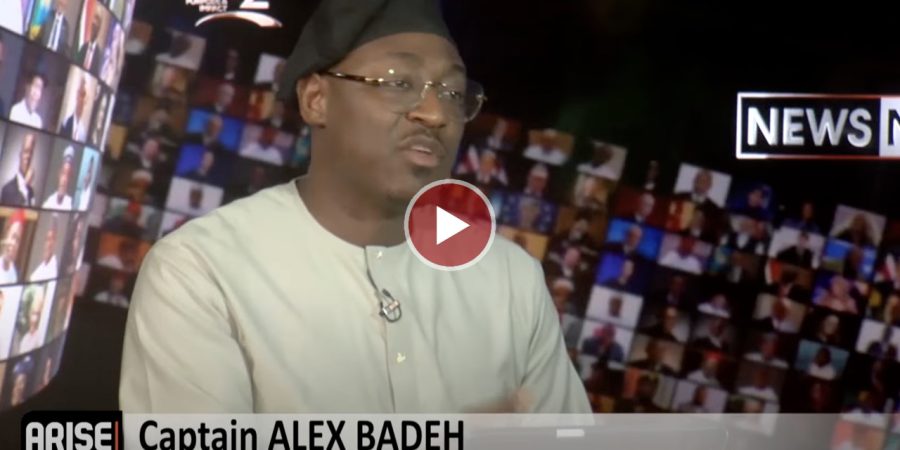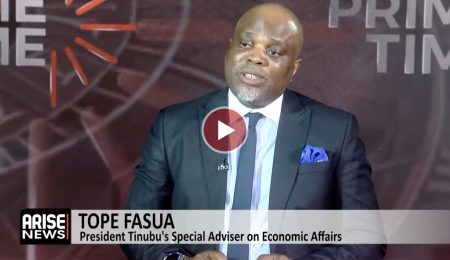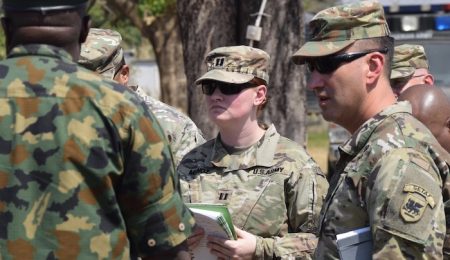The Director-General of the Nigerian Safety Investigation Bureau (NSIB), Captain Alex Badeh, has dismissed claims that the Bureau’s preliminary report on the Port Harcourt International Airport incident involving an Air Peace aircraft was aimed at sabotaging the airline.
Speaking in an interview with ARISE News on Friday, Captain Badeh said:“We’re in the eye of the storm. Sometimes people react in different ways. We’ve heard them say smear campaign against the airline, but I must point out this is not our first preliminary report we’ve published. At least at my helm at NSIB in 18 months, we’ve published countless, even on Air Peace. It’s a little surprising to suddenly hear that there is a smear campaign against Air Peace. In every other incident, there was no smear campaign until now, but again, we’re not here to litigate these. We’re here for the facts.”
He stressed that the toxicology tests carried out on the crew after the July 13 incident were not conducted by the Bureau itself.
“NSIB does not conduct tests. This was done by the Rivers State Hospital Management Board. It’s an official test. Typically, with every incident, once there’s an incident, the NSIB must take you for a toxicology report. Yes, and I think even before we got there, they were taken. They got tested. Like they said, urine analysis, samples, and blood, and it was drawn. The results came out the next day, stamped on the 14th. Crash happened on the 13th. So the report was out there.”
Badeh explained that the Bureau could not make premature announcements on the results.
“We’re not just going to knee-jerk and go out and say, oh, hey, they tested positive for this, so therefore do X, Y, and Z. It was communicated to whoever it needed to be communicated to at that time…we don’t go shouting on the rooftops.”
On the credibility of the tests, Badeh emphasised:
“Certified by who? This is a state government hospital. Certified by who? So we’re going into legalese that I can’t answer. But I would reiterate again, this is not the first preliminary report we’ve released, and this is not the first toxicology test that we’ve done for a crew in Nigeria. If the NSIB had been in existence since 2006, being AIB then, and has investigated countless accidents and released countless reports, and the one time this comes out, all of a sudden the NSIB is here to sabotage somebody, I think we need to start being fair and honest with ourselves.”
He clarified that the findings did not amount to blame or indictment.
“No one said they were guilty or not guilty or said this is what caused the crash. It said the captain and the first officer tested positive for ethyl ETG gluconide, which is a byproduct of alcohol. How it got there is not for us to start talking about this. THC metabolites, for example, are detectable between two to seven days after a single use, seven to 14 days for occasional use, and up to six weeks for chronic heavy use. But remember, this is a preliminary. No one’s indicted. The NSIB did not say the airplane crashed because so-and-so did this or we found this.”
He added that the Bureau’s safety recommendations were clear:
“The first thing we said was, strengthen your CRM training, especially handling unstabilised approaches. And secondly, reinforce internal procedures for crew fitness for duty, monitoring for dispatch. So all this bellyaching on, I didn’t do this, I didn’t do that, I didn’t draw blood— it’s unnecessary.”
On whether the airline was engaged before the report was published, Badeh was firm:
“I will challenge the airline. I will challenge to show where we before publishing a preliminary, we actually recourse to them. When we do the final reports, that is when we go to the stakeholder and we give you 60 days to respond. But with preliminary reports, no. You publish your prelim and then you let them know, hey, this is here and this is in the interest of public safety. Yes, that is per ICAO Annex 13. It should be public. It must be public. That is how you keep the system integrity. We’re not hiding anything from anybody. This is not a hidden thing.”
Dismissing suggestions of bias, the NSIB boss said:
“Why would we want to go take down an airline? I find that extremely insulting to an agency like the NSIB who’s doing the good work. And we did not blame anybody. There has not been a single blame here saying, hey, this happened because you did X, Y, and Z. The NSIB did not say fire anybody. This would not be the first time. This happens all over the world routinely.”
He further noted that naming of individual crew members did not come from the Bureau.
“I have to say something here. I don’t think we named a crew here. Did we name the captain, first officer, or flight attendant? We just said crew members. We did not put their names. Okay, we named the airline. We didn’t name the individuals. So if the individuals decide to come and out themselves in the media and we’re being accused, the NSIB didn’t mention any names. This information has not gone anywhere to anybody. We’re unbiased. At least I know we don’t even…I don’t know them.”
Explaining the investigation process, Badeh said:
“People go to interview the crew, take the crew, of course once you know the crew are fit for an interview, you talk to them, you take them to go get their blood drawn and urine samples for toxicology. That is standard procedure all around the world. Any hospital. Luckily, this is a government hospital. So unless we’re now calling into question our hospitals in Nigeria. We do the best with what we have.
“Some people talk to the crew. People go investigate, take their measurements, see what happened, pull the flight data recorder and cockpit voice recorder. And with what happened with them, once they spoke to them, they took them and got blood drawn. Simple. Case closed.”
He also stressed that the Bureau was not out to scandalise anyone.
“We just said, we found traces of this. It’s up to the NCAA to go interpret their own books. They are the regulator. I’m not the regulator. We just provide this information. Again, no one’s accusing anybody, but people, crews especially, are responsible for their licences. You protect your licence, it is your licence. You protect it.”
On when Nigerians should expect the final report, Badeh said:
“For ICAO 13, again, it says one year. We have a whole year at minimum. With the prelim, they say 30 days. There was a lot of back and forth because they wanted— I can’t force my investigators to publish something that is not ready to go to publication. Again, we have minimum of 12 months. We’ll move as fast as we can for a final. We have the prelim out there. We’ll put an interim at some point in between and the final, hopefully in 12 months. We’ll push them to get it out as fast as we can. And that’s the best we can do.”
He assured Nigerians of air safety.
“I would say they should feel safe. I mean, if Air Peace has come out and said they’re making remedial steps with the findings, then that’s all it is. That’s the whole exercise, the whole point of an investigation is to point out where the steps were made and for the parties to learn and take appropriate action so as it does not reoccur. We’re not here saying ground anybody, punish anybody. Even in the US, people test positive for drugs and other substances routinely. And you go through a program and you get your licence back,”he said.
Boluwatife Enome
Follow us on:


